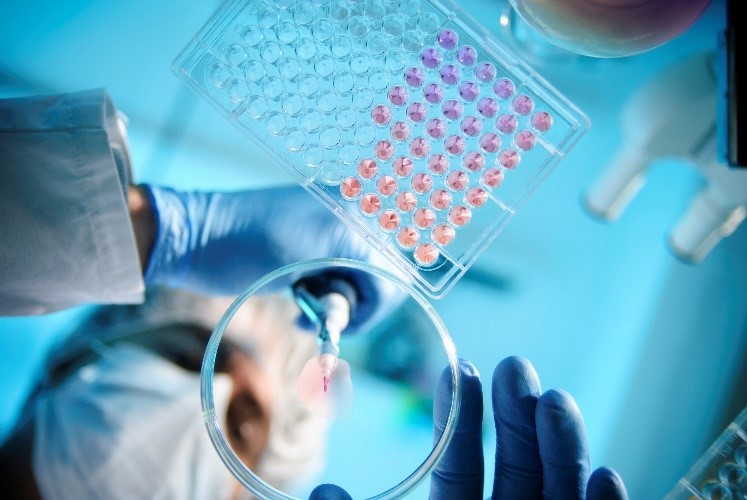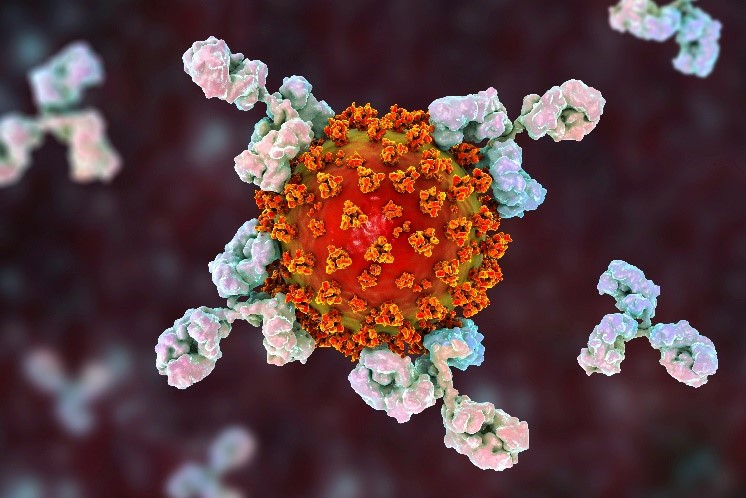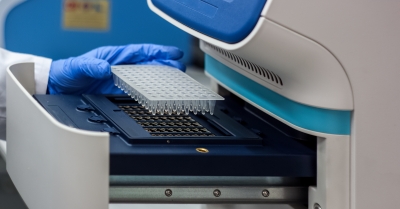Introduction Published Data What We Can Offer? Workflow Why Choose Us? FAQs Featured Services Featured Products
Accelerate Your Research and Development!
Are you currently facing the long and complex challenges of developing new drugs for complement-mediated diseases, such as the difficulty in targeting specific components like C5? Creative Biolabs' Complement System Therapeutic Drug Development Service helps you accelerate drug discovery and obtain high-quality, effective therapeutic candidates by leveraging our innovative protein engineering techniques and high-throughput screening platforms. We provide a streamlined solution to your drug development needs, from initial concept to lead optimization.
Contact our team to get an inquiry now!
Introduction
The complement system is a crucial part of the innate immune response, acting as a cascade of proteins that work to identify and eliminate pathogens and damaged host cells. It can be activated through three main pathways—classical, alternative, and lectin—all of which converge at the cleavage of complement protein C3, and then later, C5.
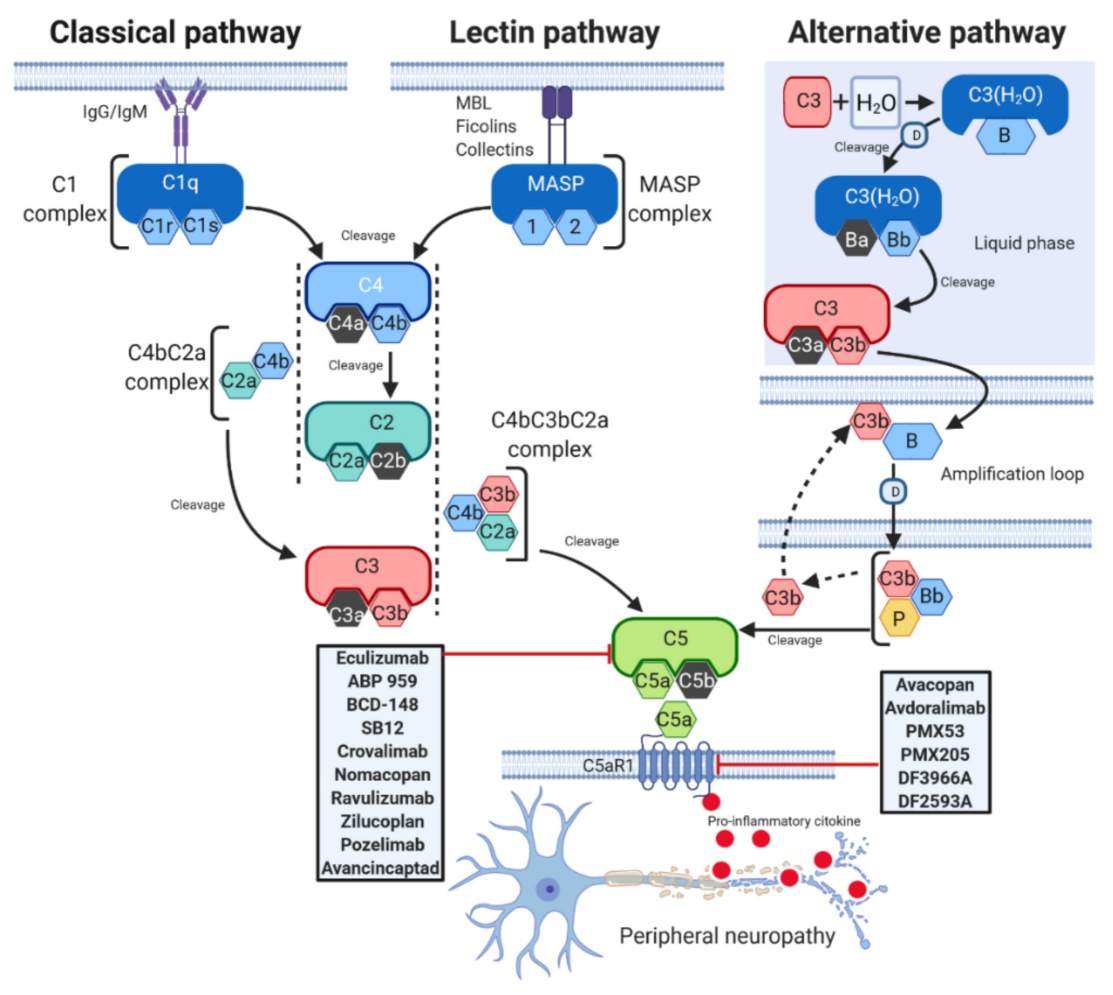 Fig.1 C5a complement activation pathways.1,3
Fig.1 C5a complement activation pathways.1,3
C5, the fifth complement constituent, functions as a keystone protein within this cascade. Its proteolytic division via C5 convertase generates two fragments: C5a and C5b. C5a acts as a powerful pro-inflammatory chemotactic effector recruiting immune cells toward infection or injury loci, whereas C5b nucleates assembly of the terminal lytic complex, culminating in Membrane Attack Complex (MAC) formation upon target cell membranes. The MAC creates transmembrane channels, inducing osmotic disruption and cellular demise. While this process is vital for host defense, its inappropriate or excessive activation can cause significant damage to healthy host tissues, leading to a wide array of autoimmune and inflammatory diseases. Research has shown that C5 activation is implicated in conditions ranging from peripheral neuropathies to influenza-induced lung injury, highlighting its central role in both defense and pathology.
Drug Development for C5
Targeting the complement system, and C5 specifically, has become a major focus for drug development due to its role in various diseases. Different types of drugs have been developed, each with a unique mechanism of action.
|
Type of Drug
|
Mechanism of Action
|
Characteristics
|
|
Monoclonal Antibodies
|
Directly binds to and blocks C5, preventing its cleavage into C5a and C5b, thus inhibiting the terminal pathway.
|
High specificity and long half-life, allowing for less frequent dosing. Can be effective for chronic diseases.
|
|
Small-Molecule Inhibitors
|
Targets C5a or its receptor (C5aR1), inhibiting the pro-inflammatory signaling cascade.
|
Can be orally administered and may offer advantages in terms of cost and patient convenience.
|
|
Peptides
|
Mimics a part of C5 to act as a competitive inhibitor or binds to C5aR1 to block its activity.
|
Generally smaller than antibodies, which can affect biodistribution and penetration.
|
|
Soluble Complement Regulators
|
These are recombinant proteins designed to mimic natural inhibitors, interfering with the complement cascade at various points.
|
Can have a broad inhibitory effect, but may lack the specificity of monoclonal antibodies.
|
Published Data
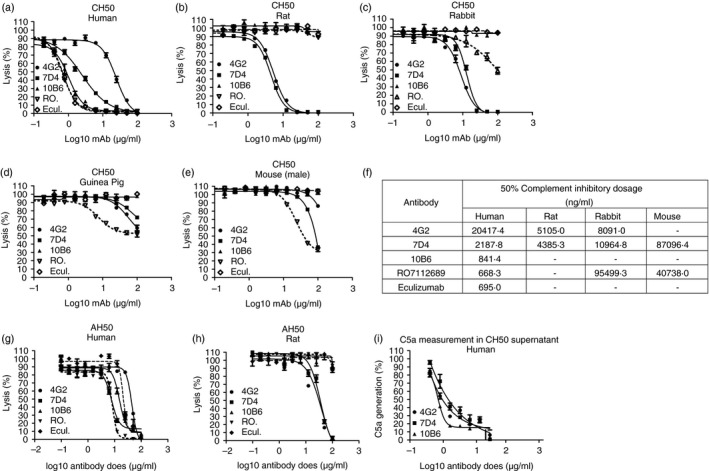 Fig.2 Functional assays to determine whether monoclonal antibodies (mAb) 4G2, 7D4, and 10B6 inhibit complement in different species.2,3
Fig.2 Functional assays to determine whether monoclonal antibodies (mAb) 4G2, 7D4, and 10B6 inhibit complement in different species.2,3
Published research has demonstrated the successful development and characterization of novel anti-C5 monoclonal antibodies (mAbs) that inhibit complement across multiple species, a feature lacking in existing therapeutics. Through a high-throughput screening process, researchers identified and characterized several inhibitory anti-C5 mAbs for C5 binding and lytic inhibitory capacity. Three prioritized candidates—4G2, 7D4, and 10B6—were designated for extended investigation. It was found that mAbs 4G2 and 7D4 were highly effective in inhibiting complement-mediated lysis in human, rabbit, and rat serum, while 10B6 was human-specific. In a critical in vivo experiment, the cross-species reactive mAb 4G2 was administered to a rat model of experimental autoimmune myasthenia gravis (EAMG). The results showed that the antibody effectively blocked the disease and protected neuromuscular junctions from destruction. This work marks a significant advancement by demonstrating that a function-blocking anti-C5 mAb can be used for preclinical studies in rats, thereby facilitating the development of new therapeutics.
What We Can Offer?
To help you accelerate your research and therapeutic development, Creative Biolabs offers a range of high-quality products and services related to the complement system.
-
Custom Antibody Development: We provide custom antibody generation services targeting C5 and other complement components, tailored to your specific research needs.
-
Recombinant Complement Proteins: A catalog of high-purity recombinant human and other species' complement proteins, including C5 and C5a, for research and assay development.
-
In vitro Complement Assays: A full suite of in vitro assays to measure complement activation, C5 cleavage, and MAC formation to test the efficacy of your therapeutic candidates.
-
Preclinical Efficacy Studies: We conduct in vivo studies in relevant animal models to evaluate the therapeutic potential of your C5 inhibitors.
-
High-Throughput Screening Services: Our service offers large-scale screening of compound libraries to identify novel inhibitors for your target.
Workflow
01
Target Design and Molecule Generation: Based on your project needs, we design and generate a diverse library of therapeutic candidates, including monoclonal antibodies and single-domain antibodies, to target C5.
02
High-Throughput Screening: We employ advanced screening technologies to identify potential lead candidates with high binding affinity and specificity for C5. This phase expedites candidate screening from the pool of prospective agents.
03
Functional Characterization: We perform a series of in vitro assays to confirm the candidates' ability to effectively inhibit C5 cleavage and subsequent downstream events.
04
Lead Optimization: Selected candidates are further engineered to enhance their therapeutic properties, including improving half-life, reducing potential immunogenicity, and fine-tuning their potency.
05
Preclinical Evaluation: Optimized candidates are tested in relevant in vivo disease models to evaluate their efficacy and safety, helping to select the most promising molecule for clinical development.
Why Choose Us?
At Creative Biolabs, our C5 drug development service stands out due to our deep scientific expertise and our commitment to a data-driven, client-focused approach.
-
Pioneering Technology: We leverage proprietary high-throughput screening platforms and advanced protein engineering techniques to efficiently identify and optimize C5 inhibitor candidates with superior binding kinetics and functional potency.
-
Streamlined Workflow: Our optimized workflow minimizes development timelines, reducing the time and cost associated with bringing a new therapeutic candidate to the preclinical stage.
-
Comprehensive Data: We provide clients with a complete data package, from initial screening results to detailed functional characterization and in vivo efficacy data, ensuring full transparency and a solid foundation for your regulatory submissions.
-
Proven Track Record: Our service is built on a foundation of successful projects, with data published in peer-reviewed journals demonstrating our capability to deliver effective therapeutic candidates. This solid evidence base provides you with the confidence that you are partnering with a leader in the field.
Access the Creative Biolabs Benefit – Request a Quotation Now
FAQs
Q: How can I be sure that a C5 inhibitor will be effective for my specific disease target?
A: The effectiveness of a C5 inhibitor depends on the specific role of the complement system in the disease pathogenesis. We recommend an initial consultation to discuss your specific disease and therapeutic goals. We can help you design a development strategy based on existing literature and our own scientific data to determine the best approach.
Q: What are the potential safety concerns with inhibiting a crucial part of the immune system?
A: Inhibition of the complement system can increase the risk of certain infections, particularly Neisseria infections, as the complement system is vital for clearing these bacteria. However, this risk can be mitigated through proactive measures like vaccination and prophylactic antibiotic use. Our service includes comprehensive safety profiling to identify and minimize these potential side effects during the development process.
Q: What is the difference between targeting C5 and C5a? Which approach is better?
A: Targeting C5 inhibits its proteolytic activation, simultaneously suppressing the generation of both pro-inflammatory C5a and cytolytic MAC assemblies. Targeting C5a or its receptor (C5aR1) specifically blocks the inflammatory arm of the pathway while leaving the lytic MAC formation intact. The "better" approach depends on the specific disease; some conditions are primarily driven by inflammation, while others require blocking the entire terminal pathway.
Q: How does your service compare to developing a therapeutic in-house?
A: Our service provides a cost-effective and time-saving alternative to in-house development. By leveraging our established platforms, proprietary technologies, and experienced team, we can accelerate your project's timeline and provide validated candidates more efficiently, without the overhead of building a dedicated lab and team from scratch.
Q: How are the final results and data presented?
A: We provide detailed, transparent reports for every step of the process. You will receive a comprehensive data package that includes raw data files, analyzed results, and a written report summarizing the project's progress and key findings. This ensures you have all the necessary information to support your internal decision-making and regulatory filings.
Creative Biolabs is your trusted partner in navigating the complex field of complement system therapeutic development. Our specialized knowledge in C5 intervention, integrated with cutting-edge technological infrastructure, guarantees the development of premium-efficacy therapeutic agents. We are committed to helping you accelerate your project and bring life-changing treatments to patients.
Featured Services
Feature Products
References
-
Giorgio, Cristina et al. "Emerging Role of C5 Complement Pathway in Peripheral Neuropathies: Current Treatments and Future Perspectives." Biomedicines vol. 9,4 399. 7 Apr. 2021, https://doi.org/10.3390/biomedicines9040399
-
Zelek, Wioleta M et al. "Development and characterization of novel anti-C5 monoclonal antibodies capable of inhibiting complement in multiple species." Immunology vol. 157,4 (2019): 283-295. https://doi.org/10.1111/imm.13083
-
Distributed under Open Access license CC BY 4.0, without modification.
For Research Use Only.
Related Sections:

 Fig.1 C5a complement activation pathways.1,3
Fig.1 C5a complement activation pathways.1,3
 Fig.2 Functional assays to determine whether monoclonal antibodies (mAb) 4G2, 7D4, and 10B6 inhibit complement in different species.2,3
Fig.2 Functional assays to determine whether monoclonal antibodies (mAb) 4G2, 7D4, and 10B6 inhibit complement in different species.2,3
